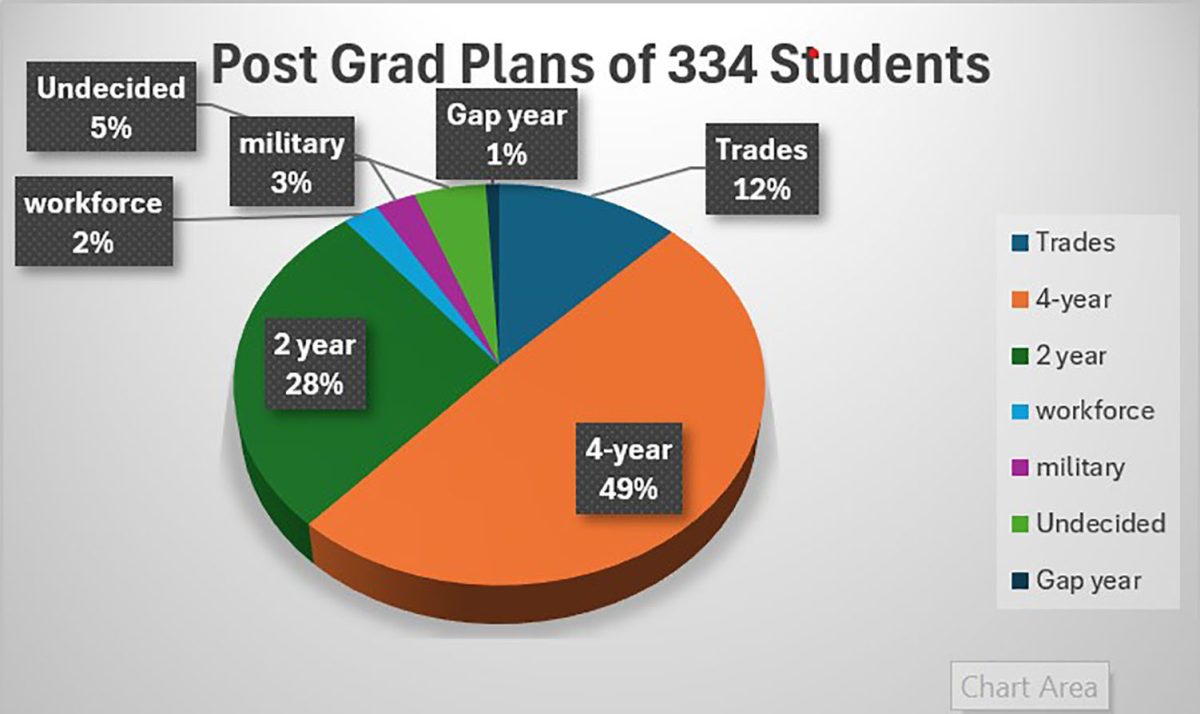People are easily offended by politics- at least according to a recent Fielder survey of 112 students in which 78.2% said they are not only are people easily offended, but 59% feel discussions of politics often turns into an argument. Talk of politics also stresses out 38.2% of students.
“A lot of people seem incapable of having a conversation without arguing,” Jordan Jones*, senior, said. “There seems to be only “far left, or far right” you aren’t allowed to be in between because people from one side will hate you if you have one opinion from the other, even if you find yourself agreeing with the original side more often.”
Seniors will soon be able to vote, and many of them have a difficult time discussing politics. Because voters are supporting their own self interests, people with different problems will be adamant about voting for the candidate that helps them the most, setting the stage for argument.
“Oftentimes people will vote for a candidate that will support policies that they feel are what is best for them,” Jeffery Purdom, psychology teacher, said.
Not only that, but 97.3% of students believe that at least one presidential candidate has lied during the debates, and other students believe they are dodging questions. Before either has even been elected, students have lost trust in their honesty.
“He [Trump] avoids any and all questions asked by moderators,” Erica Sarpong, junior, said.
“I think everything she [Harris] does is fake,” John Smith*, senior, said.
Not only do students believe that their candidates are lying, but multiple students have described Donald Trump’s behavior in the recent debate as childish or immature. Arin Belousek, sophomore, described him as “teenage girlish.”
Students have complaints about how Harris acted as well. Multiple students described her responses as “scripted”and repetitive of the same few points.
There are some students who have faith in the candidates, and understand why they gain support.
“[Trump gains support] primarily because of his economic policies, with some also supporting his views of foreign policy,” Summer Pennington, junior, said.
“People support Harris because they want to move forward in history and not go back. They want to see real change happen in the world,” Jenaiya Johnson, junior, said.
Unfortunately both candidates avoided questions or changed topics.
“She [Harris] kept telling stories and answering questions that were never asked,” Richard Rogers, sophomore, said.
There is a reason for the aversion, however: campaign strategy.
“Candidates are going to want to stick to topics that they think are areas that they are strongest and want to avoid topics that might be problematic for their candidacy,” Purdom said.
Thanks to this tactic, avoiding questions that make them look bad, the candidates seem to have broken whatever trust they had with young voters. Some students are also worried about their rights, and the laws that each candidate may pass.
“It’s stressful knowing that the laws passed or not passed could affect you or the people around you,” Johnson said.
When the candidates answer questions, they avoid saying anything that could make voters angry or upset, resulting in uninformed voters.
“They want to present information that represents them in a way that can gain voters,” Purdom said.
When the candidates present limited information, voters don’t know how they may be affected by the policies or laws passed under the candidate’s possible presidency.
*Name has been changed






